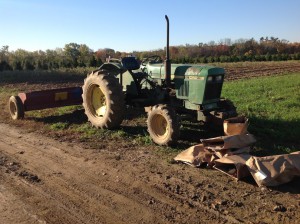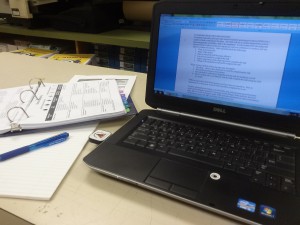Peach
Oriental Fruit Moth (OFM): The third flight and all required treatment timings are now over throughout the state. Additional treatments will only be required on very late varieties, and only if trap counts exceed 6 moths per trap.
Tufted Apple Budmoth (TABM): We are in the middle of the second flight, but pest pressure is very low. On most farms treatments are not needed. If you did have feeding injury from the first generation or have high trap counts, then you may wish to observe the following TABM timings.
[Read more…]
 The harmonized audit requires a listing of equipment (2.7.1) that has the potential to come into contact with the crop, and for each piece of equipment a maintenance record.
The harmonized audit requires a listing of equipment (2.7.1) that has the potential to come into contact with the crop, and for each piece of equipment a maintenance record.
